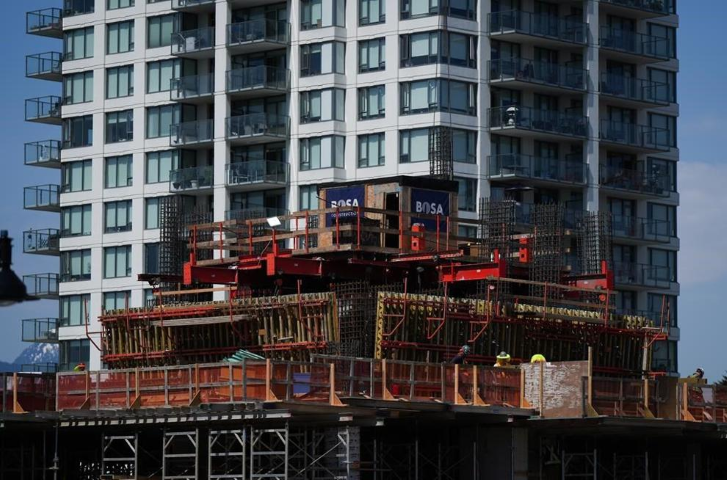
Labour shortages persist and are putting "extreme pressures" on employers. THE CANADIAN PRESS/Darryl Dyck
British Columbia's construction industry reports improvements in workforce numbers, but ongoing labor shortages are causing significant challenges for employers. The BC Construction Association reveals that a shortage of qualified workers has led to considerable pressure on employers, resulting in the average annual wage in the sector reaching nearly $75,000, a 21 percent increase over the past five years. Furthermore, the average entry-level wage for construction workers has risen to over $22 per hour, which is 25 percent higher than the provincial minimum wage.
Chris Atchison, the president of the association, emphasizes that while there have been improvements in labor levels, the industry still faces a projected deficit of 6,600 skilled workers in British Columbia by 2033. This is a notable decrease from the previously forecasted need of 26,100 workers by 2023, as estimated a decade ago. However, despite these improvements, the number of trades workers has declined by 7 percent over the last five years, totalling 167,300 workers. Additionally, the average size of construction companies in the province has shrunk by 15 percent during this period.
In addition to labor shortages, companies in the construction industry also encounter persistent challenges related to payment delays. Contractors often have to wait for months to receive payment for their work, leading to significant financial risks. This situation forces companies to bear the burden of increased debt, putting them at risk of bankruptcy. The delays in payment also result in construction projects being essentially financed by the companies themselves, including much-needed housing projects in British Columbia.
The BC Construction Association is urging Premier David Eby to introduce prompt-payment legislation to address these payment delays and provide relief to the industry. The construction sector is a vital contributor to the province's economy, employing 229,100 individuals and accounting for $27 billion, or 10.3 percent, of British Columbia's Gross Domestic Product (GDP).
In response to these concerns, the government's Attorney General's Ministry has engaged with the construction industry to explore the implementation of prompt-payment legislation, taking inspiration from similar laws in other jurisdictions. The government aims to understand the specific needs and preferences of the construction industry in British Columbia regarding payment practices.
Overall, while there have been improvements in labor levels and wages within British Columbia's construction industry, ongoing labor shortages and payment delays continue to pose significant challenges for employers. The implementation of prompt-payment legislation is seen as a crucial step in alleviating these challenges and supporting the continued growth and stability of the construction sector in the province.















